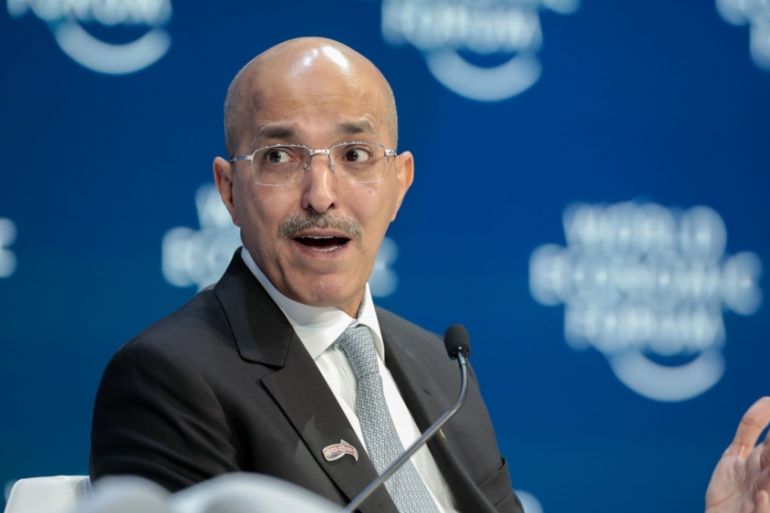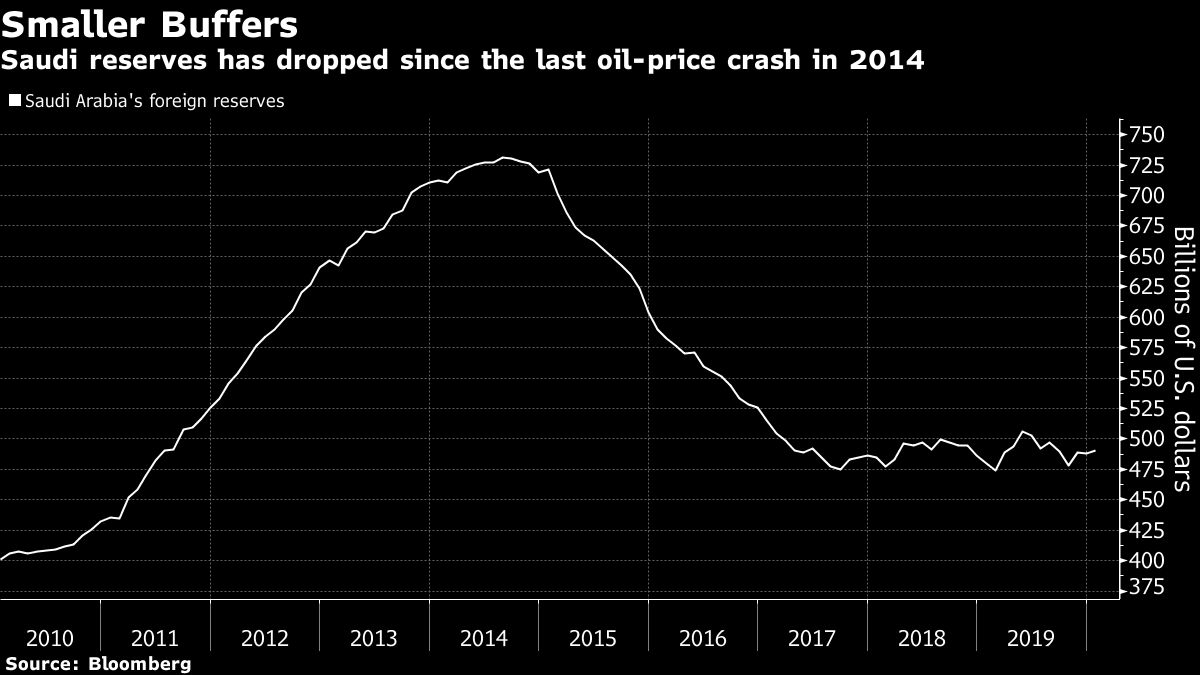Saudi Arabia joins Middle East bond binge to bolster finances
This is the second time this year that the world’s largest oil exporter has turned to international capital markets.

Saudi Arabia is selling a Eurobond as it follows other Middle Eastern states that have tapped the market in recent weeks to bolster their finances in the face of the coronavirus pandemic and plunging energy prices.
as Crown Prince Mohammed bin Salman pushes ahead with plans to open up the economy and wean it off crude. In December, the government sold a $29 billion stake in energy giant Saudi Aramco through the largest initial public offering in history.
“It doesn’t have a choice but to borrow from the bond market,” said Richard Segal, a senior analyst at Manulife Investment in London. “With oil prices lower and soon production lower, and an economic support package recently in place, the government’s deficit and financing requirements have jumped.”
Keep reading
list of 4 itemsWill the US unemployment rate continue at historic lows?
Mexico’s teachers seek relief from pandemic-era spike in school robberies
‘A bad chapter’: Tracing the origins of Ecuador’s rise in gang violence
Investors flocked to the kingdom’s latest deal on Wednesday, placing more than $42 billion of orders by around 1 p.m. in London, according to a person familiar with the matter. Saudi Arabia is offering a three-part dollar bond with maturities of 5.5 years, 10.5 years and 40 years. The final terms will probably be announced later in the day.
Budget strains
Citigroup Inc., Goldman Sachs Group Inc. and HSBC Holdings Plc are managing the sale. It comes after Qatar and Abu Dhabi attracted larger-than-normal demand from global bond investors last week, raising $17 billion between them. Israel issued $5 billion at the beginning of the month.
Saudi Arabia’s economy, the biggest in the region, is coming under strain after Brent crude prices sank around 50% this year to under $30 a barrel. While the kingdom has a low ratio of debt to gross domestic product, it needs an oil price of almost $80 to balance its budget. Its deficit will more than double in 2020 to almost 10% of GDP, according to Moody’s Investors Service.
It also has smaller buffers than when oil prices last crashed in mid-2014, with foreign reserves having declined from roughly $730 billion then to less than $500 billion.
The government plans to raise its debt ceiling from 30% to 50% of economic output and said it could borrow as much as 100 billion riyals ($26.6 billion) this year.
“Oil prices are a significant drag on the Saudi economy,” said Todd Schubert, head of fixed-income research at Bank of Singapore Ltd. Still, “the current environment affords an opportunity to pick up a solid investment-grade sovereign at valuations that are attractive versus historical spread levels.”

Saudi Arabia last came to the international debt market in January, raising $5 billion. Finance Minister Mohammed Al-Jadaan said the kingdom may issue an additional $4 billion in foreign bonds this year, though that was before oil prices plunged. An agreement among OPEC+ producers on Sunday to cut supply by around 10 million barrels a day has failed to lift prices this week.
“At this oil price level, there is pain for everyone, and it is not sustainable,” said Mohieddine Kronfol, the chief investment officer for Middle Eastern and North African fixed income at Franklin Templeton. “While we are budgeting for a lower oil price for longer, we do expect to see a new oil price regime to emerge and think we could be back over $45 per barrel before year end.”
Franklin Templeton raised its estimate of 2020 bond sales by governments and companies in the Gulf Cooperation Council to $105 billion, from an earlier forecast of $90 billion.
The recent Eurobond deals from Middle Eastern borrowers, as well as others such as Indonesia, indicate a resurgence of investor appetite for high-rated debt following last month’s global sell-off, which all but closed the market for developing-nation governments.
Borrowers are paying up hefty premiums, however.
Initial price talk on Saudi Arabia’s 40-year tranche is 5.15%. Its longest outstanding Eurobond, which matures in 2055, trades with a yield of 4.33%.
The shortest notes are being marketed with a spread of around 315 basis points over U.S. Treasuries, and the 10.5-year portion at 325 basis points.